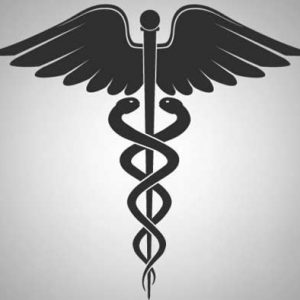Description
Product Format : LIVE
Date : 10th September
Aired Time : 1 p.m. E.T.
Expert : Jill M. Young CPC, CEDC, CIMC
Duration : 60 Minutes
Prepare for 2021 ICD 10 CM Updates
2021 ICD 10 CM Updates. From October 1st onwards, providers and their offices must learn about the ICD 10 code changes and incorporate new ICD 10 CM diagnosis codes into their work flow. Knowing where to find the list of new codes and deleted codes is an important part of work to prepare for the new coding year. This includes reviewing the ICD 10 CM Coding guidelines each and every year for any changes that may affect and how you use the codes from a rules perspective.
In April of 2020, two new code areas were released. Those related to the corona virus and CoVID-19 and those related to Vaping Disorders. The codes and their official guideline information are now added to the 2021, ICD 10 CM book. When we look at the guidelines we see not only chapter specific instructions for the corona virus infections but also instructions for CoVID-19 infections in the chapter areas of childbirth and newborns. These guidelines are generally what we saw with the April 1st release but the addition of information for screening and testing for antibodies has been added.
There are new instructions added to the diabetes mellitus section on the use of insulin, oral hypoglycemic and injectable non insulin drugs. There is also a new listing in the guidelines for vaping related disorders. There are new considerations for patient self-reported documentation when it comes to social determinants of health.
New ICD 10 Code Additions Overview:
Some of the additions and deletions in the 2021 codes are what might be called housekeeping items. For example changing the listing of a INCLUDES2 code from (F46-)to (F46.-) or the changing of parenthesis in the BMI codes (BMI) to brackets [BMI] to properly identify the acronym. Here are a few more icd 10 code changes that we know are coming.
- Several new code sets have been added to identify individuals who have substance abuse issues and stop using the cocaine, alcohol, other stimulants, opioids, cannabis, and sedatives/hypnotics/ anxiolytics. These individuals are not identified as having an addiction but rather are users who are stopping that use and are experiencing withdrawal symptoms
- New codes in the Sickle Cell code sets to classify patients without major complications but who are in crisis. Code sets have been expanded in the Temperature-Sensitive Acquired Autoimmune Hemolytic Anemias to allow for differentiation of the 4 types of AIHA.
- New codes classifying Cerebrospinal fluid leaks. New codes to classify the presence of a certain level of eosinophils for asthma patients. This is distinctive from the current diagnostic codes that classify asthma based on severity, persistence, and the presence of exacerbation
- New codes added to the existing combination code for ulcerative esophagitis with bleeding to classify bleeding associated with reflux esophagitis, specified esophagitis NEC, and unspecified esophagitis
- New codes to better distinguish between two conditions, Blount Disease and Osgood-Schlatter. The new codes will adequately represent the clinical significance of this each disorder
- New codes to classify glomerulopathy for two subtypes DDD and C3GN. This is critical for identifying appropriate disease etiology, patient segmentation, and therapeutic selection
- New codes to for Chronic Kidney Disease Stage 3 (moderate), to capture additional stage 3 detail
- New codes breakdown for specificity of eye in the sub-section of corneal transplant
- And much more
Join medical coding expert Jill Young in this in-depth training webinar to find out what has changed for 2021 (overview of all changes) —and which of these changes will most affect your practice. This webinar will cover changes both in the codes and the guidelines. Background information on why changes are occurring is given as the presenter notes valuable information and does not just read slides. You will be also provided with full list of changes and Resource locations on CDC website for up to date info.
Who should Attend:
- Coders
- Billers
- Office Managers
- Practice Managers
- Physicians and Surgeons
This is an original event brought to you by WiseQuestion
(WiseQuestion is learner supported. When you buy through links on our site, we may earn an affiliate commission)
Expert Speaker:
 Jill M. Young
Jill M. Young
Ms. Young is the Principal of Young Medical Consulting, LLC. A company founded 18 years ago to meet the education and compliance needs of physicians and their staff.
Jill has over 40 years of medical experience working in all areas of the medical practice including clinical, billing and rounding with physicians. Her unique style of working with physicians is not only effective but helps bridge the gap between coders and physicians from a practical perspective. Her comments and opinions can be seen in several publications and also heard on a variety of audio-conferences. Her background gives her a unique style of teaching using real life examples of coding and billing situations.
She hates boring lectures, so be prepared for a presentation that is fast paced and informative





